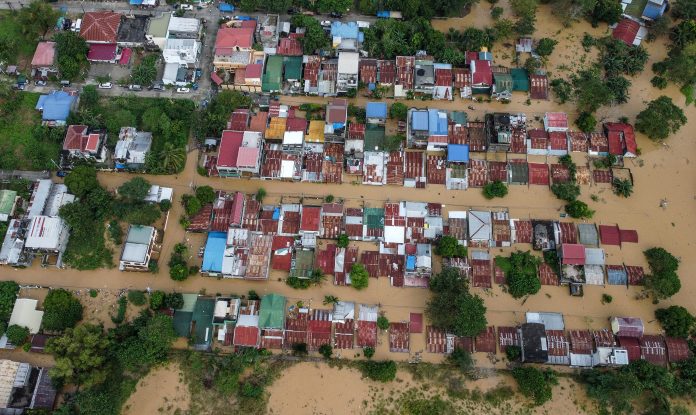Experts are sounding the alarm over a record-breaking typhoon season in the Western Pacific, linking the unprecedented activity to human-caused climate change.
For the first time on record, four named tropical systems—Typhoon Yinxing, Typhoon Toraji, Super Typhoon Usagi, and Super Typhoon Man-Yi—were simultaneously active in November, a month traditionally considered less active for storms.
The standout among them, Super Typhoon Man-Yi, demonstrated the strongest intensity, fueled by warmer-than-average sea surface temperatures that scientists attribute to climate change.
According to the Climate Shift Index: Ocean, these elevated temperatures were made “up to 40 times more likely by human-caused climate change.”
Dr. Daniel Gilford, a meteorologist and climate scientist at Climate Central, described the conditions that intensified the storms.
“The parade of typhoons tracked over waters clearly heated by human-caused climate change. These elevated ocean temperatures increased the chance of rapid intensification for each storm, compounding their collective impacts,” Gilford explained.
The Philippines has been one of the hardest-hit nations this season, experiencing a total of 16 tropical cyclones or their remnants.
The repeated typhoons have caused widespread devastation, including deadly landslides and severe flooding.
At least 160 people have been killed, and more than 9 million have been displaced as communities grapple with extensive damage to infrastructure, homes, and farmlands.
The Climate Shift Index: Ocean, a tool grounded in peer-reviewed science, quantifies the influence of climate change on sea surface temperatures globally.
By analyzing high-quality data, it reveals how human activity has increased the likelihood of extreme ocean temperatures, providing insights into the connection between warming oceans and more frequent and severe storms.
With the Western Pacific’s typhoon activity intensifying, experts warn that the growing impact of climate change could exacerbate humanitarian crises and further strain vulnerable communities.







